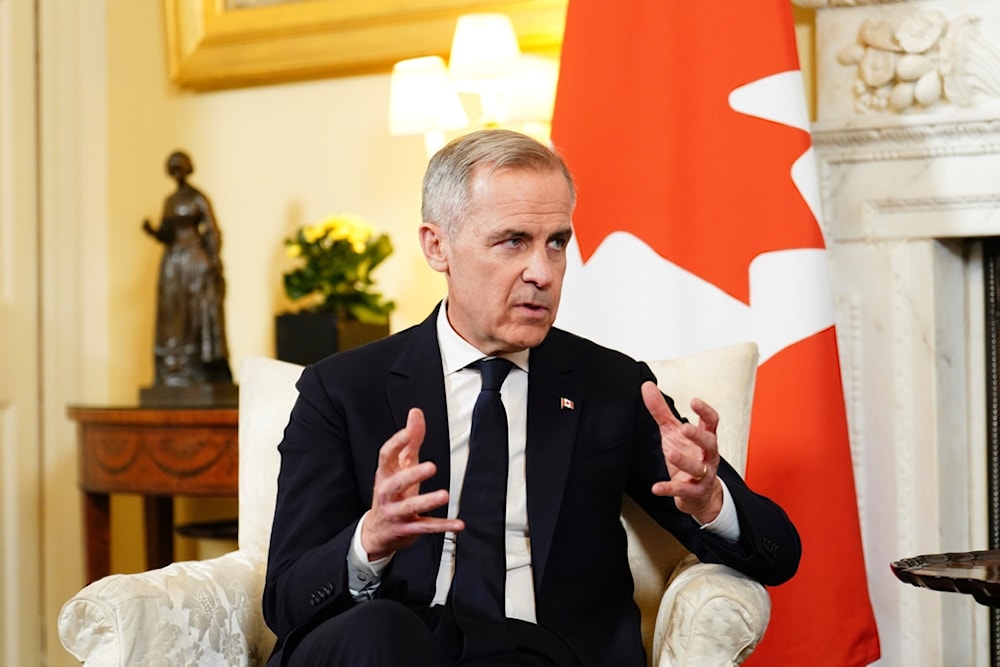Canada's new PM Carney calls snap election to counter Trump threats
Observers believe smaller parties may be sidelined as voters rally around one of the two main contenders in hopes of strengthening Canada's stance against Washington's increasingly hostile tone.
-

Canada's Prime Minister Mark Carney talks during a meeting with Britain's Prime Minister Sir Keir Starmer in 10 Downing Street, London, England, Monday, March 17, 2025. (AP)
Canada's newly appointed Prime Minister Mark Carney announced on Sunday that the country will hold early elections on April 28. The decision comes amid rising tensions with US President Donald Trump, whose repeated remarks questioning Canadian sovereignty have shaken the political landscape.
"I've just requested that the governor general dissolve parliament and call an election for April 28. She has agreed," Carney said in a televised address, referring to the British monarch's representative in Canada.
Carney, a former central banker and political newcomer, was recently selected by the centrist Liberal Party to succeed Justin Trudeau. Though now leading the government, he has yet to face voters directly. The upcoming election will serve as his first national test.
Focus on threats from the US
The prime minister made clear that his campaign would focus on confronting threats from the United States. "Trump wants to break us, so America can own us. We will not let that happen," Carney declared.
Trump's comments suggesting Canada should become the 51st US state and his escalation of a trade war—including new tariffs targeting Canadian imports—have alarmed many Canadians. The economic strain and questions about national sovereignty are expected to shape the campaign.
Read more: Canada can keep ‘O Canada’ anthem as 51st US state: Trump
"In this time of crisis, the government needs a strong and clear mandate," Carney told supporters during a recent speech in Edmonton.
Until Carney's appointment, the governing Liberals had faced steep declines in popularity, and the Conservative Party, led by Pierre Poilievre, was favored to win. But since the leadership transition, the race has tightened.
Existential election
Polls now suggest a competitive contest between the Liberals and Conservatives, with analysts stressing the historic weight of the moment. "Many consider this to be an existential election, unprecedented," said Felix Mathieu, a political scientist at the University of Winnipeg. "It is impossible at this stage to make predictions, but this will be a closely watched election with a voter turnout that should be on the rise."
Poilievre, known for his populist rhetoric, has been a fixture in Canadian politics for two decades. Carney, in contrast, built his career outside the electoral arena, serving as head of both Canada's and the United Kingdom's central banks.
Observers believe smaller parties may be sidelined as voters rally around one of the two main contenders in hopes of strengthening Canada's stance against Washington's increasingly hostile tone.
Trump, meanwhile, dismissed the Canadian election, while still claiming to have influenced it. "I don't care who wins up there," he said. "But just a little while ago, before I got involved and totally changed the election, which I don't care about [...] the Conservative was leading by 35 points."

 3 Min Read
3 Min Read








